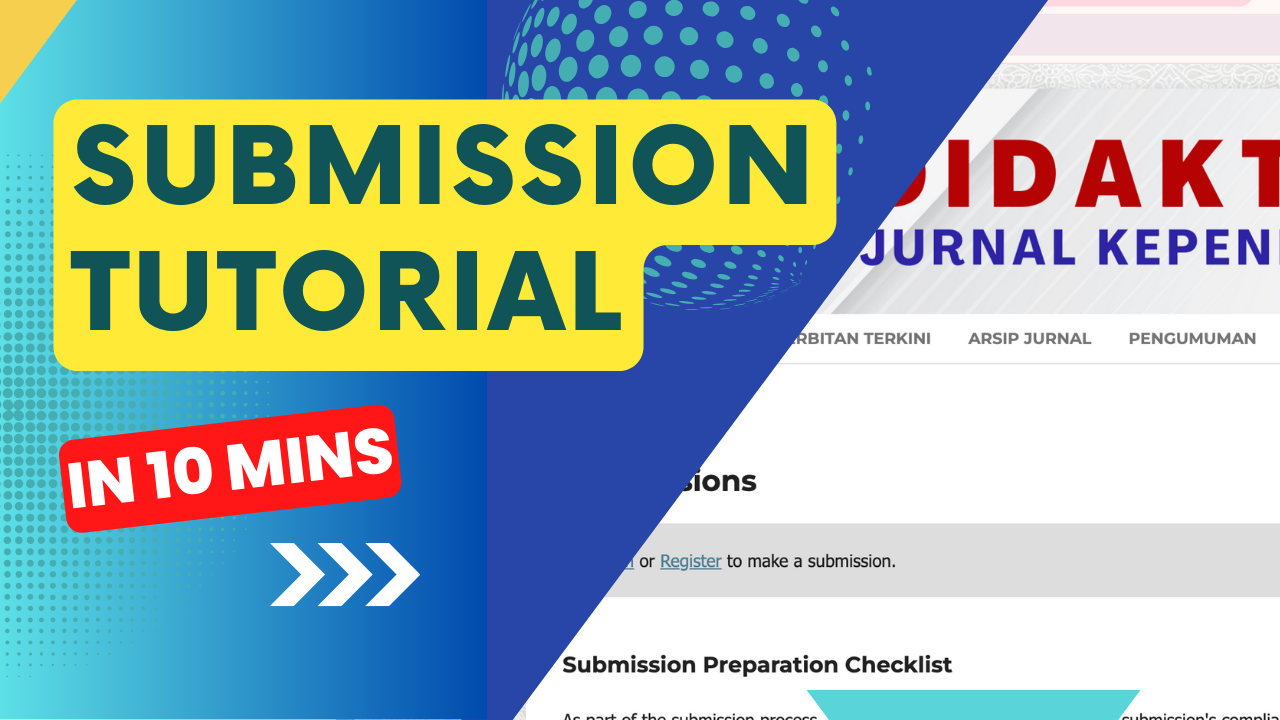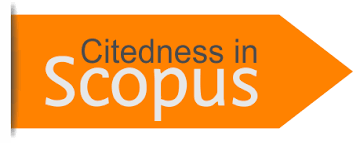Level of Learning Independence in Elementary School Students: The Influence of Self-Efficacy, Motivation, and Peer Interaction
Abstract
This study aims to analyze the influence of self-efficacy, learning motivation, and peers on student learning independence in elementary schools. The research method used was a survey and data analysis using regression techniques. The research sample consisted of fourth-grade students in two elementary schools, totaling 65 people. Data were collected through questionnaires that measured the level of self-efficacy, learning motivation, peers, and learning independence. The results showed that self-efficacy is positively and significantly related to the level of students' learning independence. The higher the level of students' self-efficacy, the higher the level of learning independence they show. In addition, learning motivation also has a positive influence on learning independence. Students who have high learning motivation tend to be more independent in overcoming their learning challenges. In addition to self-efficacy and learning motivation, peers also play an important role in students' learning independence. The results showed that supportive and positive peer relationships were associated with higher levels of learning independence. Based on these findings, efforts to improve students' learning independence can focus on strengthening self-efficacy and learning motivation, as well as creating an environment that supports positive relationships with peers.
Metrics
References
Abidah, A., Hidaayatullaah, H. N., Simamora, R. M., Fehabutar, D., Mutakinati, L., & Suprapto, N. (2020). The impact of covid-19 to indonesian education and its relation to the philosophy of “merdeka belajar.” Studies in Philosophy of Science and Education, 1(1), 38–49.
Alamri, H., Lowell, V., Watson, W., & Watson, S. L. (2020). Using personalized learning as an instructional approach to motivate learners in online higher education: Learner self-determination and intrinsic motivation. Journal of Research on Technology in Education, 52(3), 322–352.
Arista, M., Sadjiarto, A., & Santoso, T. N. B. (2022). Pengaruh Motivasi belajar dan teman sebaya terhadap kemandirian belajar pelajaran ekonomi pada pembelajaran daring di masa pandemi. Jurnal Basicedu, 6(4), 7334–7344.
Atosakhi, G. (2003). dkk, Character Building 1 Relasi dengan Diri Sendiri (edisi revisi). Jakarta: Elex Media Komputindo.
Bandura, A. (1977). Social Learning Theory. Prentice-Hall.
Bandura, A. (1995). Self-Efficacy in Changing Societies. Cambridge University Press.
Bandura, A. (1997). Self Efficacy: The Exercise of Control. In Psychological Review. Stanford Univesity.
Blackwell, L. S., Trzesniewski, K. H., & Dweck, C. S. (2007). Implicit theories of intelligence predict achievement across an adolescent transition: A longitudinal study and an intervention. Child Development, 78(1), 246–263.
Brown, G. T. L., Peterson, E. R., & Yao, E. S. (2016). Student conceptions of feedback: Impact on self-regulation, self-efficacy, and academic achievement. British Journal of Educational Psychology, 86(4), 606–629. https://doi.org/10.1111/BJEP.12126
Darmadi, H. (2014). Metode Penelitian Pendidikan Dan Sosial Teori Konsep Dasar dan Implementasi. Alfabeta.
Deci, E. L., & Ryan, R. M. (2012). Self-determination theory. Handbook of Theories of Social Psychology, 1(20), 416–436.
Dekker, T. J. (2020). Teaching critical thinking through engagement with multiplicity. Thinking Skills and Creativity, 37, 100701. https://doi.org/10.1016/J.TSC.2020.100701
Dewi, S. (2017). Hubungan Tingkat Keterlaksanaan Pembelajaran Aktif Pada Materi Akuntansi Dengan Efikasi Diri dan Keterampilan Berpikir Kreatif Siswa. Jurnal Ilmiah Pendidikan, 1(2), 49–59.
Droege, K. L., & Stipek, D. J. (1993). Children’s use of dispositions to predict classmates’ behavior. Developmental Psychology, 29(4), 646.
Eriyanto, M. G., Roesminingsih, M. V., Soedjarwo, & Soeherman, I. K. (2021). The Effect of Learning Motivation on Learning Independence and Learning Outcomes of Students in the Package C Equivalence Program. IJORER : International Journal of Recent Educational Research, 2(4), 455–467. https://doi.org/10.46245/IJORER.V2I4.122
Ghozali, I. (2018). Aplikasi Analisis Multivariate Dengan IBM SPSS 25. Badan Penerbit Universitas Diponegoro.
Hasibuan, A. M., Saragih, S., & Amry, Z. (2019). Development of Learning Materials Based on Realistic Mathematics Education to Improve Problem Solving Ability and Student Learning Independence. International Electronic Journal of Mathematics Education, 14(1), 243–252. https://doi.org/10.29333/iejme/4000
Hernaus, T., Cerne, M., Connelly, C., Poloski Vokic, N., & Škerlavaj, M. (2019). Evasive knowledge hiding in academia: when competitive individuals are asked to collaborate. Journal of Knowledge Management, 23(4), 597–618.
Jabnabillah, F. (2021). Pengaruh Motivasi Belajar Terhadap Kemandirian Belajar Pada Pembelajaran Daring di Masa Pandemi Covid-19. Jurnal Pendidik Indonesia (JPIn), 4(2), 104–111.
Lane, J., Lane, A. M., & Kyprianou, A. (2004). Self-efficacy, self-esteem and their impact on academic performance. Social Behavior and Personality: An International Journal, 32(3), 247–256.
Lau, C., Kitsantas, A., Miller, A. D., & Drogin Rodgers, E. B. (2018). Perceived responsibility for learning, self-efficacy, and sources of self-efficacy in mathematics: a study of international baccalaureate primary years programme students. Social Psychology of Education, 21(3), 603–620. https://doi.org/10.1007/s11218-018-9431-4
Mariani, I., Zulkifli, Z., & Mulyani, R. R. (2023). Pengaruh Peran Teman Sebaya Terhadap Kemandirian Belajar Peserta Didik Di Kelas XII IPS SMA Negeri 3 Pariaman. Jurnal Pendidikan Dan Konseling (JPDK), 5(2), 775–780.
Meece, J. L. (2023). The role of motivation in self-regulated learning. In Self-regulation of learning and performance (pp. 25–44). Routledge.
Miranda, V., Faslah, R., & Rachmadania, R. F. (2020). Self-Efficiency and Achievement Motivation on Student Learning Independence. Jurnal Pendidikan Ekonomi, Perkantoran Dan Akuntansi, 7(4), 120–128. http://pub.unj.ac.id/index.php/jpepa
Morris, T. H. (2018). Adaptivity Through Self-Directed Learning to Meet the Challenges of Our Ever-Changing World. Https://Doi.Org/10.1177/1045159518814486, 30(2), 56–66. https://doi.org/10.1177/1045159518814486
Myers, C. G. (2018). Coactive vicarious learning: Toward a relational theory of vicarious learning in organizations. Academy of Management Review, 43(4), 610–634.
Ramli, N., Ramli, N., Muljono, P., & Afendi, F. M. (2018). The influencing factors of self directed learning readiness and academic achievement. Jurnal Kependidikan Penelitian Inovasi Pembelajaran, 2(1), 153–166. https://doi.org/10.21831/jk.v2i1.15307
Ritchie, L., & Williamon, A. (2011). Primary school children’s self-efficacy for music learning. Journal of Research in Music Education, 59(2), 146–161.
Sadi, O., & Uyar, M. (2013). The relationship between self-efficacy, self-regulated learning strategies and achievement: A path model. Journal of Baltic Science Education, 12(1), 21–33. https://doi.org/10.33225/JBSE/13.12.21
Saeid, N., & Eslaminejad, T. (2016). Relationship between Student’s Self-Directed-Learning Readiness and Academic Self-Efficacy and Achievement Motivation in Students. International Education Studies, 10(1), p225. https://doi.org/10.5539/IES.V10N1P225
Salsabila, A., & Puspitasari, P. (2020). Faktor-faktor yang Mempengaruhi Prestasi Belajar Siswa Sekolah Dasar. PANDAWA, 2(2), 278–288. https://doi.org/10.36088/PANDAWA.V2I2.800
Shin, M.-H. (2018). Effects of Project-Based Learning on Students’ Motivation and Self-Efficacy. English Teaching, 73(1), 95–114.
Slamet, S. (2006). Dinamika Kelompok (Edisi Revisi). Jakarta: Bumi Aksara.
Sugiyono. (2016). Metode Penelitian Pendidikan Pendekatan Kuantitatif, Kualitatif, dan R&D. Alfabeta.
Trisnawaty, S., Soesilo, T. D., & Setyorini, S. (2022). Pengaruh Motivasi Belajar Terhadap Kemandirian Belajar Siswa Kelas IX A SMP Sudirman Ambarawa. Jurnal Wahana Konseling, 5(2), 125–136.
Uno, H. B. (2007). Teori motivasi & pengukurannya.
Van Dinther, M., Dochy, F., & Segers, M. (2011). Factors affecting students’ self-efficacy in higher education. Educational Research Review, 6(2), 95–108. https://doi.org/10.1016/J.EDUREV.2010.10.003
Zimmerman, B. J., & Kitsantas, A. (2005). Homework practices and academic achievement: The mediating role of self-efficacy and perceived responsibility beliefs. Contemporary Educational Psychology, 30(4), 397–417. https://doi.org/10.1016/j.cedpsych.2005.05.003
Copyright (c) 2023 Arfan Triwiratman, Toto Nusantara, Imanuel Hitipeuw

This work is licensed under a Creative Commons Attribution 4.0 International License.
Dengan mengirimkan naskah artikel, berarti penulis setuju dengan segala kebijakan yang ditetapkan oleh jurnal dan penerbit.
Penulis menyatakan bahwa:
- kebijakan ini telah diketahui dan disetujui bersama oleh semua penulis;
- naskah artikel belum dipublikasikan secara resmi sebelumnya di media ber-ISSN atau ber-ISBN yang terdaftar, kecuali dalam bentuk abstrak atau sebagai bagian dari materi kuliah, atau skripsi/tesis/disertasi yang tidak diterbitkan;
- naskah tidak sedang dalam proses editorial dan dipertimbangkan untuk publikasi di tempat lain;
- publikasi naskah ini telah disetujui oleh semua penulis, institusi afiliasi penulis, otoritas yang bertanggung jawab, dan lembaga di mana kegiatan telah dilakukan;
- naskah berisi materi yang aman dari pelanggaran hak cipta;
Perjanjian Hak Cipta dan Lisensi
- Penulis memiliki hak cipta dan hak kepemilikan lainnya yang terkait dengan artikel.
- Penulis memiliki hak dan diizinkan untuk menggunakan substansi artikel untuk karya-karya penulis berikutnya, termasuk untuk keperluan bahan/materi kuliah dan buku.
- Penulis menyerahkan hak publikasi pertama kepada jurnal dengan di bawah Lisensi Creative Commons (CC BY 4.0).
Pernyataan Lisensi CC BY 4.0
Anda diperbolehkan:
- Berbagi — menyalin dan menyebarluaskan kembali materi ini dalam bentuk atau format apapun;
- Adaptasi — menggubah, mengubah, dan membuat turunan dari materi ini untuk kepentingan apapun, termasuk kepentingan komersial.
Pemberi lisensi tidak dapat mencabut ketentuan di atas sepanjang Anda mematuhi ketentuan lisensi berikut ini.
- Atribusi — Anda harus mencantumkan nama yang sesuai, mencantumkan tautan terhadap lisensi, dan menyatakan bahwa telah ada perubahan yang dilakukan. Anda dapat melakukan hal ini dengan cara yang sesuai, namun tidak mengisyaratkan bahwa pemberi lisensi mendukung Anda atau penggunaan Anda.
- Tidak ada pembatasan tambahan — Anda tidak dapat menggunakan ketentuan hukum atau sarana kontrol teknologi yang secara hukum membatasi orang lain untuk melakukan hal-hal yang diizinkan lisensi ini.






.png)








